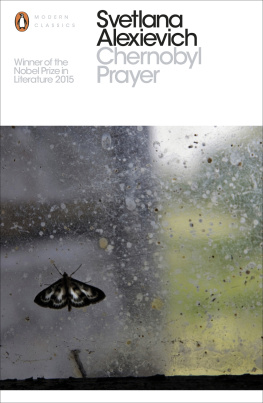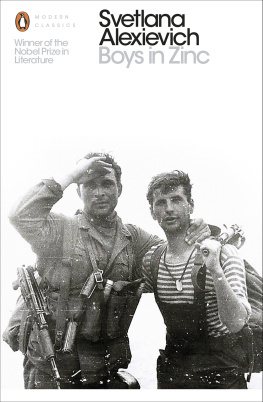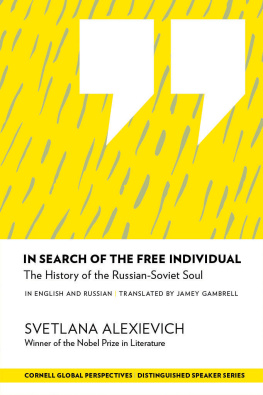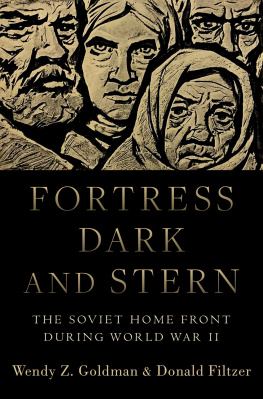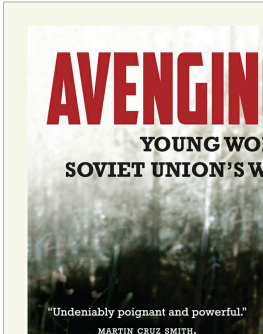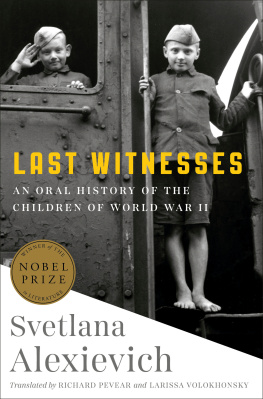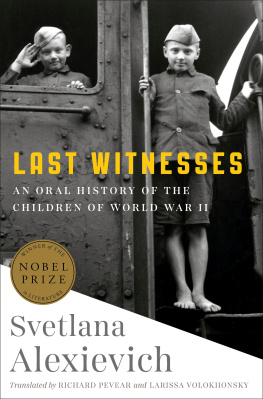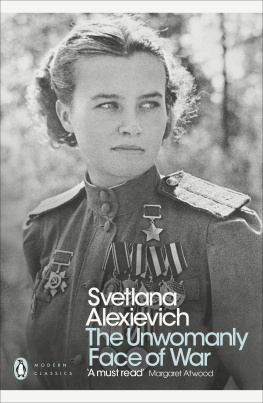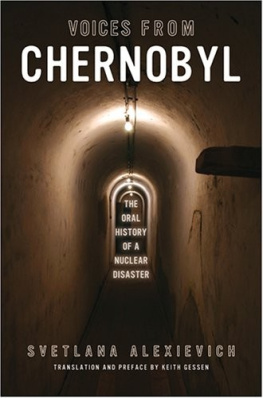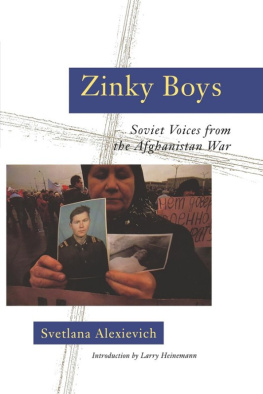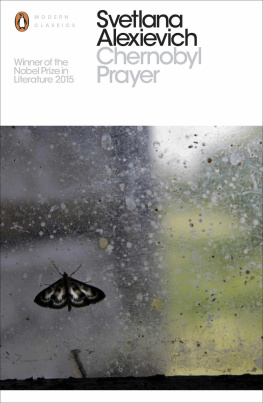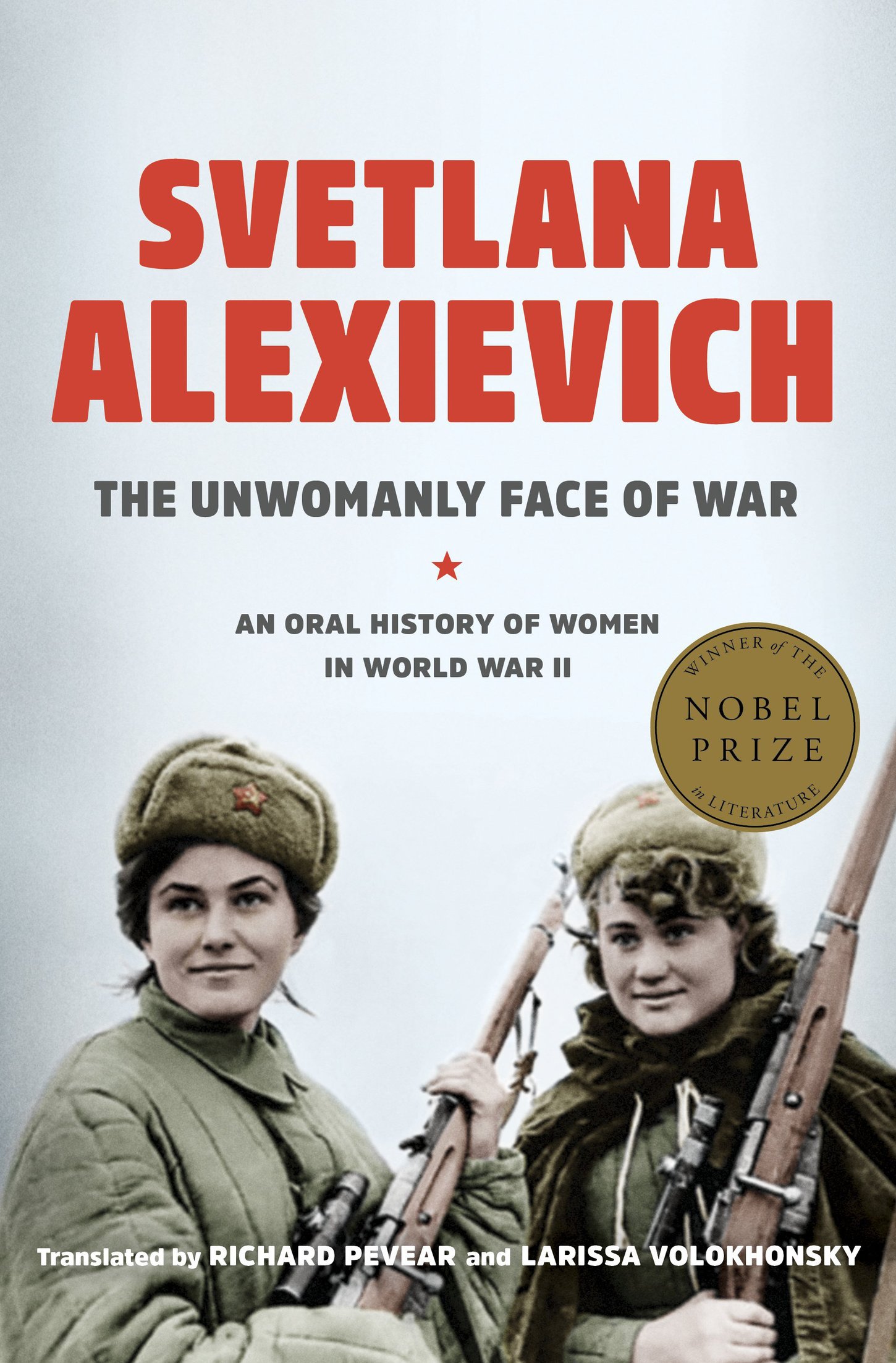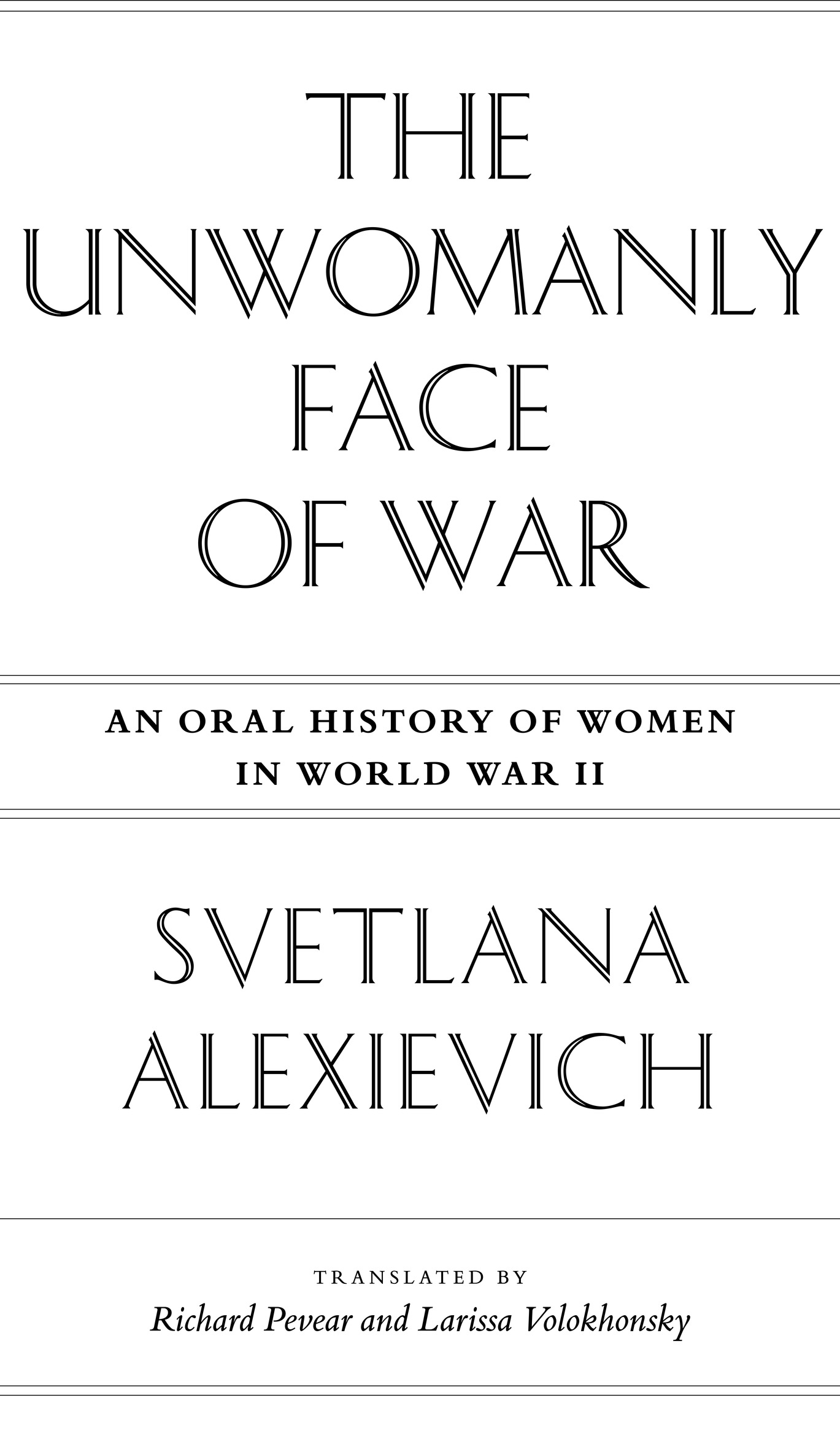Copyright 2017 by Svetlana Alexievich
Translation copyright 2017 by Richard Pevear and Larissa Volokhonsky
All rights reserved.
Published in the United States by Random House, an imprint and division of Penguin Random House LLC, New York.
R ANDOM H OUSE and the H OUSE colophon are registered trademarks of Penguin Random House LLC.
Originally published in Russian as by Mastatskaya Litaratura, Minsk, in 1985. Copyright 1985 by Svetlana Alexievich.
Originally published in English as Wars Unwomanly Face by Progress Publishers, Moscow, in 1988. This English translation is published in the United Kingdom by Penguin, London.
L IBRARY OF C ONGRESS C ATALOGING-IN- P UBLICATION D ATA
N AMES: Aleksievich, Svetlana, author. | Pevear, Richard, translator. | Volokhonsky, Larissa, translator.
T ITLE: The unwomanly face of war : an oral history of women in World War II / Svetlana Alexievich; translated by Richard Pevear and Larissa Volokhonsky.
O THER TITLES: U voinyne zhenskoe litso. English
D ESCRIPTION: New York : Random House, 2017
I DENTIFIERS: LCCN 2016036099 | ISBN 9780399588723 | ISBN 9780399588730 (ebook)
S UBJECTS: LCSH: World War, 19391945WomenSoviet Union. | World War, 19391945Personal narratives, Russian. | World War, 19391945 Participation, Female. | Women and warSoviet Union.
C LASSIFICATION: LCC D810.W7 A5313 2017 | DDC 940.53/4709252dc23 LC record available at https://lccn.loc.gov/2016036099
Ebook ISBN9780399588730
randomhousebooks.com
Book design by Barbara M. Bachman, adapted for ebook
Cover design: Anna Bauer Carr
Cover photograph: female Soviet snipers (Lyudmila Pavlichenko, left), 1944
v4.1
ep
Contents
At what time in history did women first appear in the army?
Already in the fourth century B.C. women fought in the Greek armies of Athens and Sparta. Later they took part in the campaigns of Alexander the Great.
The Russian historian Nikolai Karamzin wrote about our ancestors: Slavic women occasionally went to war with their fathers and husbands, not fearing death: thus during the siege of Constantinople in 626 the Greeks found many female bodies among the dead Slavs. A mother, raising her children, prepared them to be warriors.
And in modern times?
For the first time in England, where from 1560 to 1650 they began to staff hospitals with women soldiers.
What happened in the twentieth century?
The beginning of the centuryIn England during World War I women were already being taken into the Royal Air Force. A Royal Auxiliary Corps was also formed and the Womens Legion of Motor Transport, which numbered 100,000 persons.
In Russia, Germany, and France many women went to serve in military hospitals and ambulance trains.
During World War II the world was witness to a womens phenomenon. Women served in all branches of the military in many countries of the world: 225,000 in the British army, 450,000 to 500,000 in the American, 500,000 in the German
About a million women fought in the Soviet army. They mastered all military specialties, including the most masculine ones. A linguistic problem even emerged: no feminine gender had existed till then for the words tank driver, infantryman, machine gunner, because women had never done that work. The feminine forms were born there, in the war
The Russian poet and writer Nikolai Karamzin (17661826) was the author of a masterful twelve-volume History of the Russian State.
Millions of the cheaply killed
Have trod the path in darkness
O SIP M ANDELSTAM
FROM THE JOURNAL OF THIS BOOK
19781985
I am writing a book about war
I, who never liked to read military books, although in my childhood and youth this was the favorite reading of everybody. Of all my peers. And that is not surprisingwe were the children of Victory. The children of the victors. What is the first thing I remember about the war? My childhood anguish amid the incomprehensible and frightening words. The war was remembered all the time: at school and at home, at weddings and christenings, at celebrations and wakes. Even in childrens conversations. The neighbors boy once asked me: What do people do under the ground? How do they live there? We, too, wanted to unravel the mystery of war.
It was then that I began to think about deathAnd I never stopped thinking about it; it became the main mystery of life for me.
For us everything took its origin from that frightening and mysterious world. In our family my Ukrainian grandfather, my mothers father, was killed at the front and is buried somewhere in Hungary, and my Belorussian grandmother, my fathers mother, was a partisan and died of typhus; two of her sons served in the army and were reported missing in the first months of the war; of three sons only one came back. My father. The Germans burned alive eleven distant relations with their childrensome in their cottage, some in a village church. These things happened in every family. With everybody.
For a long time afterward the village boys played Germans and Russians. They shouted German words: Hnde hoch! Zurck! Hitler kaputt!
We didnt know a world without war; the world of war was the only one familiar to us, and the people of war were the only people we knew. Even now I dont know any other world and any other people. Did they ever exist?
T HE VILLAGE OF MY postwar childhood was a village of women. Village women. I dont remember any mens voices. That is how it has remained for me: stories of the war are told by women. They weep. Their songs are like weeping.
In the school library half of the books were about the war. The same with the village library, and in the nearby town, where my father often drove to get books. Now I know the reason why. Could it have been accidental? We were making war all the time, or preparing for war. Remembering how we made war. We never lived any other way, and probably didnt know how. We cant imagine how to live differently, and it will take us a long time to learn, if we ever do.


